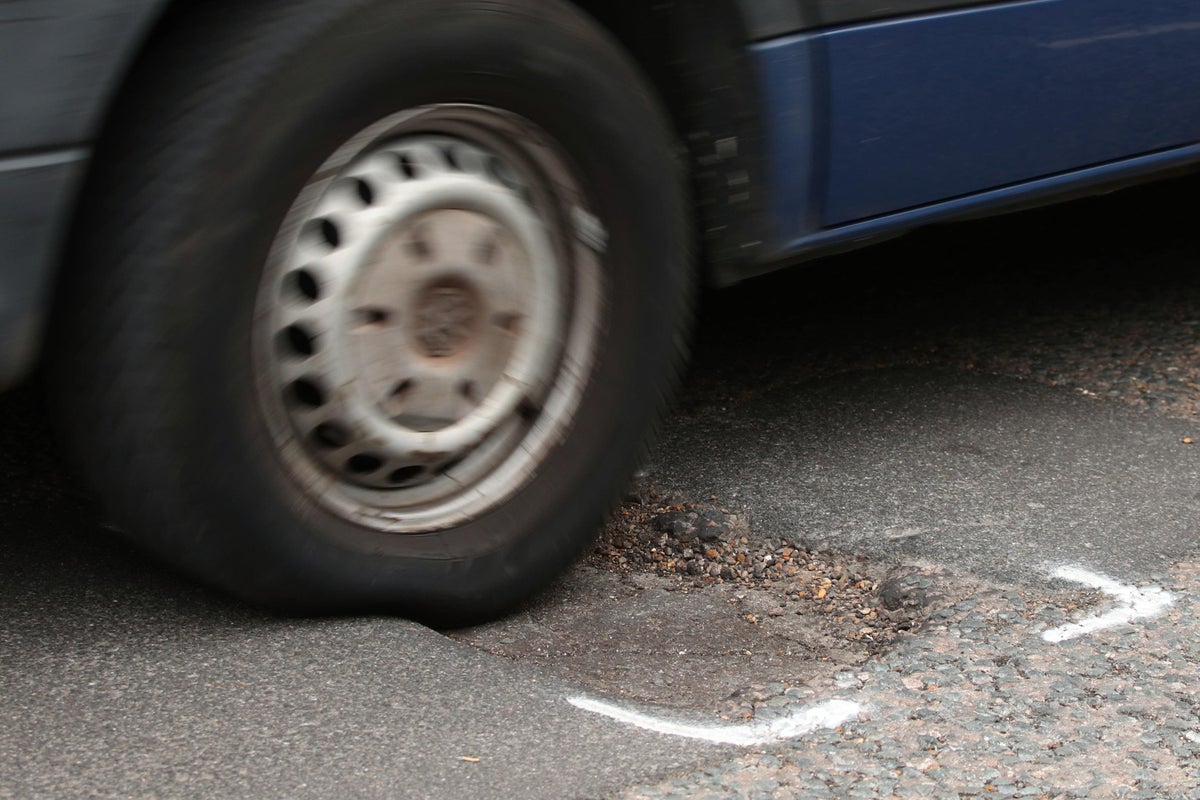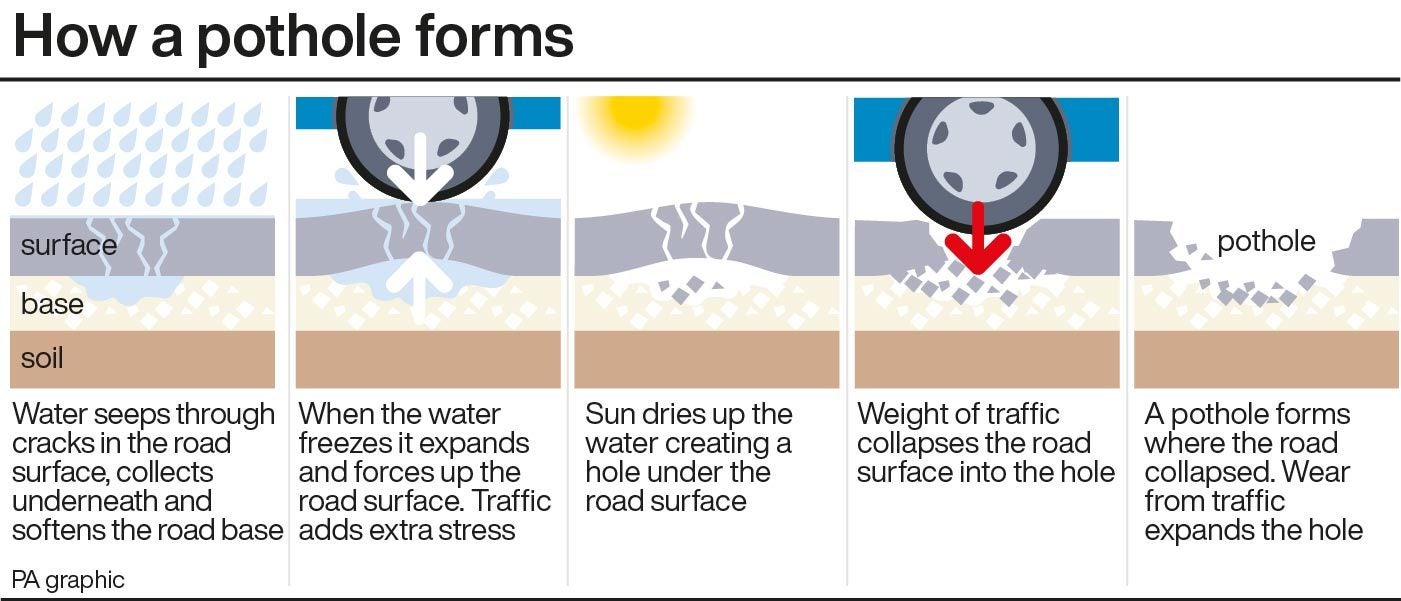
The total cost of repairing vehicles damaged by potholes hit a record high last year, new figures show.
Common problems caused by potholes include damaged shock absorbers, broken suspension springs and distorted wheels.
The AA said the total cost of fixing vehicles it attended in the UK which had broken down because of poor road surfaces in 2024 was £579 million.
That is compared with £474 million during the previous 12 months and is the highest total on record.
The increase happened because a slight fall in the number of incidents, from 647,690 to 643,318, was more than offset by a leap in average repair bills, from £250 to £300.

The AA attributed the rise in average repair costs to a combination of inflation, more advanced technology in cars and shortages of spare parts.
It is part of a campaign group named the Pothole Partnership, which marked National Pothole Day on Wednesday by urging local authorities to prioritise permanent resurfacing and repairs over “patch and run policies” which often lead to potholes reappearing.
Total local road maintenance funding for England provided by the Government in the 2025/26 financial year will be nearly £1.6 billion, representing a £500 million uplift compared with the previous 12 months.
The Department for Transport (DfT) previously said it will make sure highway authorities “spend the money wisely” and deliver “proactive maintenance” before potholes start to form.
A quarter of the increased funding will be held back until authorities have demonstrated they are using it well.
Adam Hug, transport spokesperson for the Local Government Association, which represents councils, called on the Government to “reconsider” this move, to “give councils the greater certainty they need”.
He added: “Greater and sustainable long-term funding will enable councils to far more effectively plan for and invest in preventative treatments, which keep surfaces in better condition for longer.
“The upcoming spending review provides an opportunity to give councils greater, longer-term funding certainty, so they can help make our local roads more resilient to severe weather, boost inclusive economic growth and prevent potholes which are more expensive to repair than preventative measures.”
The cost of bringing pothole-plagued local roads in England and Wales up to scratch has been estimated at £16.3 billion.
AA president Edmund King said: “There is some light at the end of the pothole tunnel.
“The Government has listened to the Pothole Partnership and is beginning to instigate policies that should lead to longer term fixes rather than the recent patchwork approach.
“The good news is that pothole related car incidents have declined but the bad news is that the cost of repairs has increased.
“Potholes are still the number one issue for drivers and more needs to be done to build on this improvement.”
Another breakdown rescue company, the RAC, said the number of pothole-related callouts it received between October and December was 17% more than in the previous three months.
It warned that the issue could worsen this year because of recent severe weather, which last week meant the RAC had one of its busiest periods for breakdowns in the past five years.
To prevent water-damaged roads in future, we urge local highways authorities to resurface those in the worst condition and surface dress (a preservation treatment) other roads to stop them deteriorating further
Potholes are often formed when water freezes and expands after entering cracks in the road surface.
RAC spokeswoman Alice Simpson said: “In the aftermath of this month’s blast of snow and ice, we may see the unwelcome trend continue in 2025.
“To prevent water-damaged roads in future, we urge local highways authorities to resurface those in the worst condition and surface dress (a preservation treatment) other roads to stop them deteriorating further.
“Hopefully the Government funding announced before Christmas will go some way towards literally filling in the cracks.”
Roads minister Lilian Greenwood will visit a JCB factory in Derbyshire on Wednesday to meet some of the company’s engineers and test its Pothole Pro machine.
The DfT said the device can fix a pothole in eight minutes and is currently used by 20 local authorities.
Ms Greenwood said: “Potholes are a clear sign of decline in our infrastructure, and for too long roads like those in Derbyshire have been left in a state which endangers and costs road users.
“It’s time for change and we are investing £1.6 billion to fix up to seven million more potholes across England next year, including over £75 million for the East Midlands Combined Authority.
“JCB’s Pothole Pro is one of the many great examples of using new technology to repair potholes faster and demonstrates how companies are harnessing new technology to repair potholes faster.”







